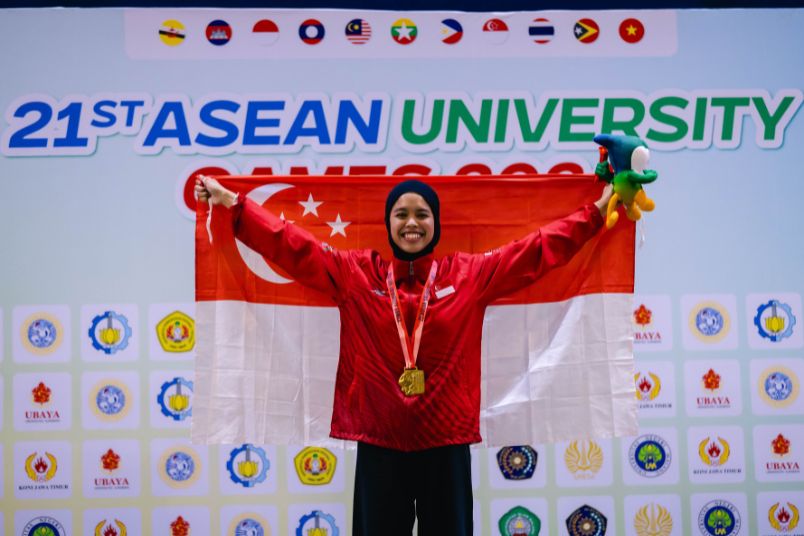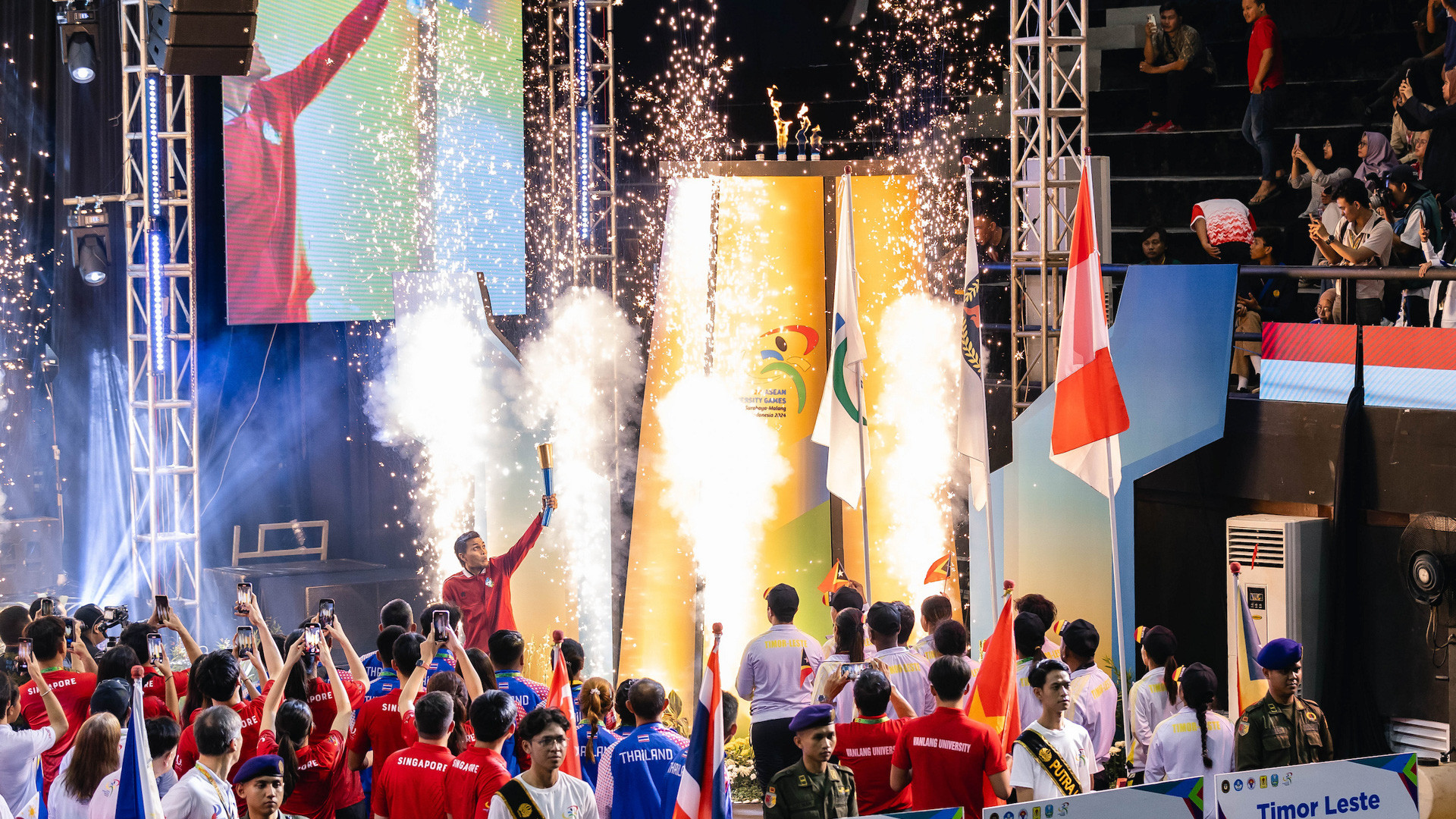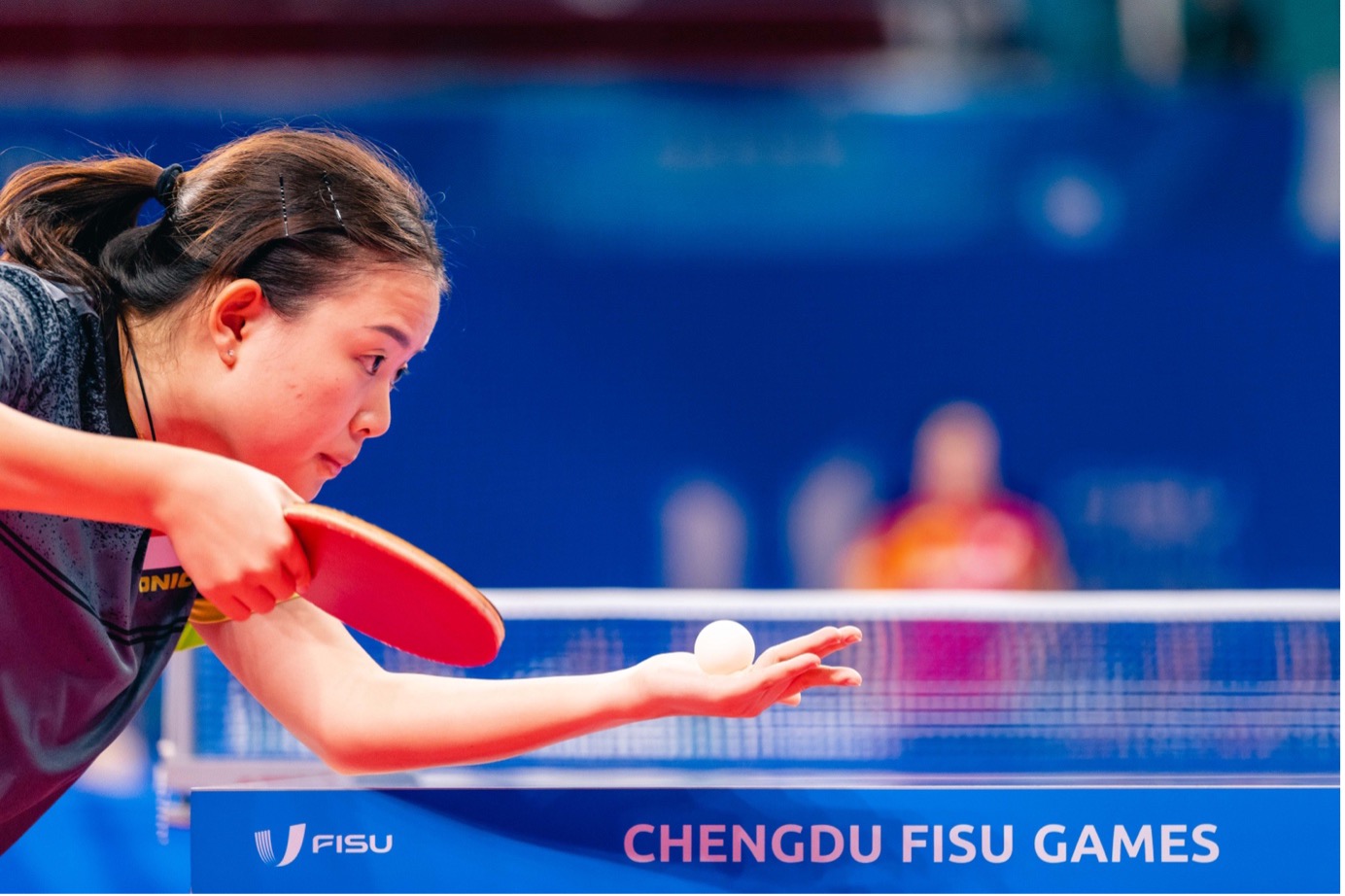Nurul Irbah Binte Muhammad Razali’s sports journey is nothing short of inspirational. At just 23, she already boasts 16 years of competitive silat experience. By the age of 17 in 2018, Irbah had earned gold in the Match Female Class B (43-47kg) category, proudly representing Team Singapore at the World Junior Pencak Silat Championship. Her meteoric rise was temporarily halted in 2020 by a sports injury, but her unyielding spirit saw her make a full recovery in 2022, setting the stage for a remarkable comeback.
Since her return, Irbah has not only excelled in the tertiary, national, and international silat arenas but has also embraced a leadership role, serving as the NUS Silat Team Captain for AY23/24. Her tenacity and dedication have earned her numerous accolades, the latest being her recognition as the Merit recipient of the Sportswoman of the Year at this year’s prestigious NUS Achievement Awards (NAA).
Shortly after this honour, OSA had the privilege of speaking with Irbah about her remarkable journey, her motivations, and her advice for fellow student-athletes striving to balance academics with competitive sports.
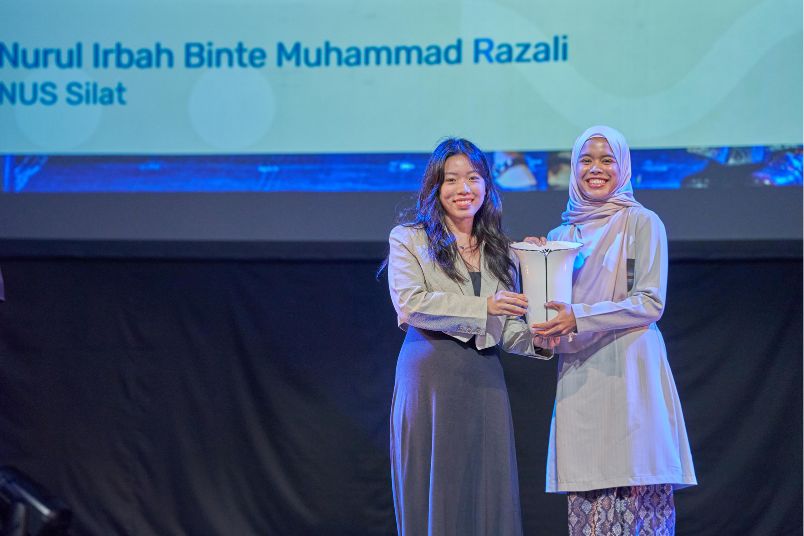
Irbah receiving her NAA Sportswoman of the Year award in Oct 2024 from last year’s recipient, Adele Tan.
OSA: How were you introduced to competitive silat? How did that come to a momentary halt four years ago?
I was introduced to silat at a local mosque when I was 7 years old. My then-coach encouraged me to enter a local inter-club competition that same year, which kickstarted my competitive journey. At 14, I joined the national team and started competing internationally. In 2020, I sustained an injury which led me to take a break from the sport and leave the national team. I returned to silat with the intention of pursuing it leisurely when I entered NUS in 2022 and eventually returned to competitive silat when I fully recovered from my injury.
OSA: Why did you decide to make a return to international sport?
I missed the thrill of competing. Leaving the national team abruptly due to my injury left me feeling like my journey in the sport was unfinished. Silat is something that brings me joy, and I wanted to experience that adrenaline rush again. Competing also gave me the opportunity to bond with my NUS teammates and build meaningful friendships with athletes from other universities.
OSA: In addition to representing Singapore, how do you feel about being representing NUS Silat?
I was NUS Silat Captain in AY23/24. NUS Silat is a community that means a lot to me. I have made many meaningful relationships with my teammates and coaches. Thus, being able to lead the team and guide them with my past experiences was really something enjoyable and valuable.
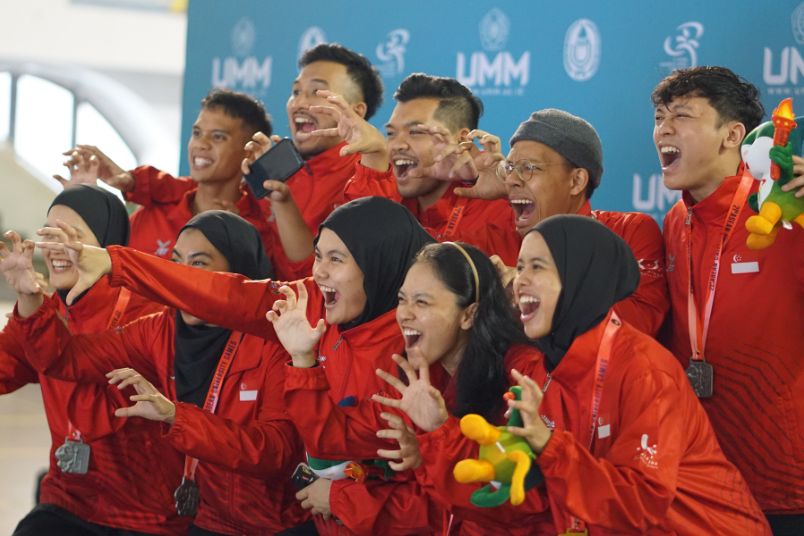
Irbah (first row, first from right) with NUS Silat at the Asean University Games 2023, her first international competition since 2020.
OSA: NUS Silat and you received notable titles at the Tertiary Silat Championship (TSC) and Asean University Games (AUG) that took place during your captaincy. Tell us more about them.
I am so proud that NUS won the Overall Best Team for the first time in history during my captaincy. I participated in both categories (Artistic and Match) and won the gold medal for both. I am very grateful for the dedication of my coaches, the support from my family and teammates, and the effort I put into the competition preparation paid off when I as well as awarded the Best Female Athlete.
AUG was the first international competition I participated in since I left the national team. Getting back onto the international arena after years was definitely nerve-wracking, but also exhilarating. Competing at such a high level against skilled athletes was an incredible experience, and winning made it all the more rewarding, reaffirming my passion for the sport I love.
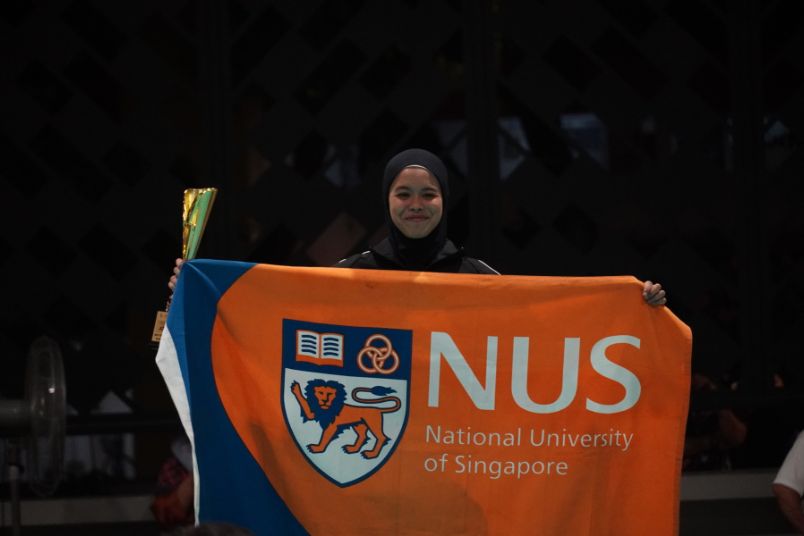
Irbah beaming with pride after receiving a gold medal at TSC. She was crowned Best Female Athlete at the event.
OSA: How did you prepare for AUG, your international competition in three years?
I competed in one category, Female Match Class A (45-50kg). The preparation involved consistent training throughout the second semester of the previous AY, with twice-weekly sessions, and more intensive training during the summer break, increasing to three to four sessions a week. With recent rule changes in the sport, I had to learn new techniques and adapt to the new game style, which involved studying videos of other athletes to refine my approach. We also trained alongside current national team players, whose advice and insights were invaluable. Additionally, I maintained my fitness through regular runs.
OSA: I understand that you were injured at the recent AUG but chose to continue competing. Could you recount what happened?
I sustained an ankle injury in the second round of my final match at AUG after twisting it during contact with my opponent. Despite the pain, I chose to keep competing because I was determined to win the gold medal. Competing at AUG is a rare opportunity, and having come so far with tough matches in the quarter and semi-finals, I didn’t want to let the gold medal slip away in the final match. Additionally, my mum, brother, and two best friends had come all the way to Malang to support me, and I didn’t want to disappoint them. With their encouragement in mind, I pushed through the injury and managed to win the match. Although it meant nursing the injury for weeks afterward, it was absolutely worth it.
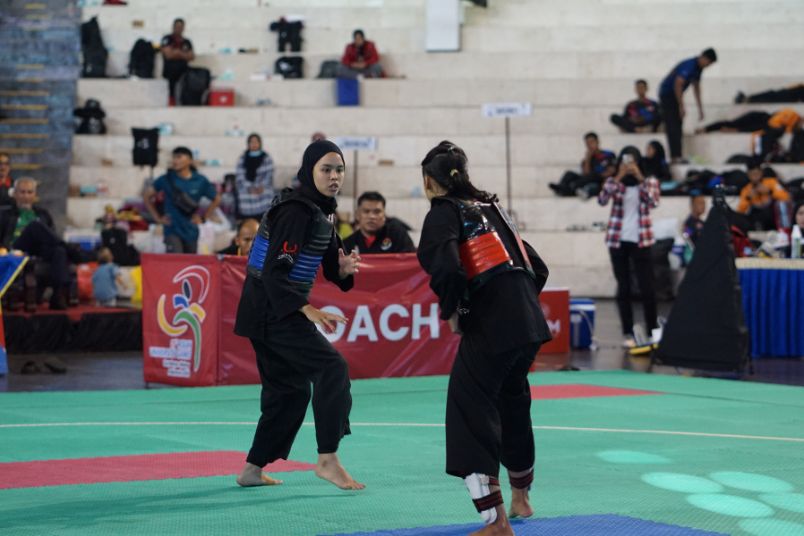
Irbah (left) in the final round of Female Match Class A (45-50kg) competition at Asean University Games in 2023.
OSA: For your efforts, you were the sole recipient of Sportswoman of the Year at NAA this year. What does this award mean to you?
Receiving the Merit award at NAA for Sportswoman of the Year was truly rewarding, as it reflects the school’s recognition of my dedication and commitment to balancing both academics and sports. It’s a validation of the countless hours of training and hard work, as well as the effort I put into managing my studies alongside my passion for silat.
OSA: What advice would you give to NUS students who are juggling competitive sports and studies?
Balancing sports and studies can be challenging, and at times, it may feel overwhelming. My advice is to reach out to your support system; I was fortunate to have the strong support of my family, friends, and teammates. Time management is key, but it’s also crucial to recognise when you need a break. Missing a training session or study period isn’t unproductive if it helps you recharge—it allows you to return to your routine feeling refreshed and more focused!
Share:
Contributor
Office of Student Affairs


